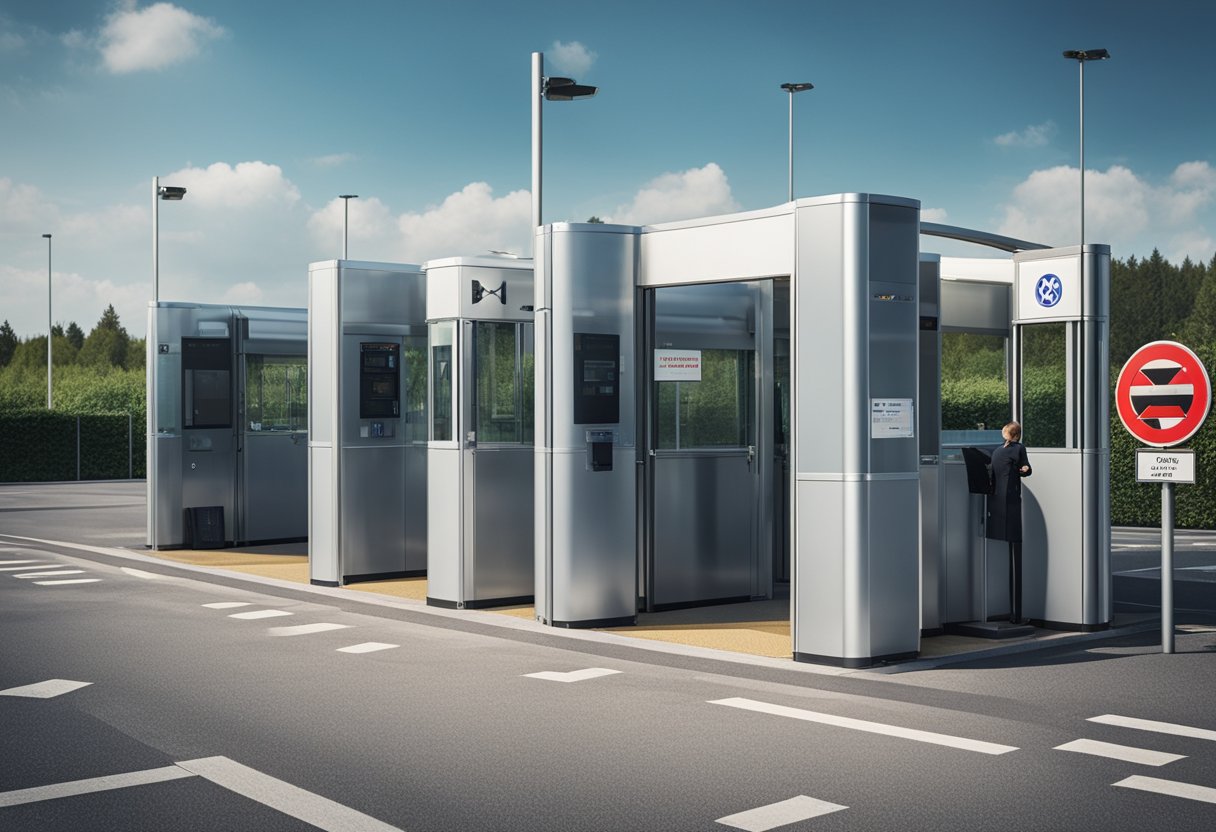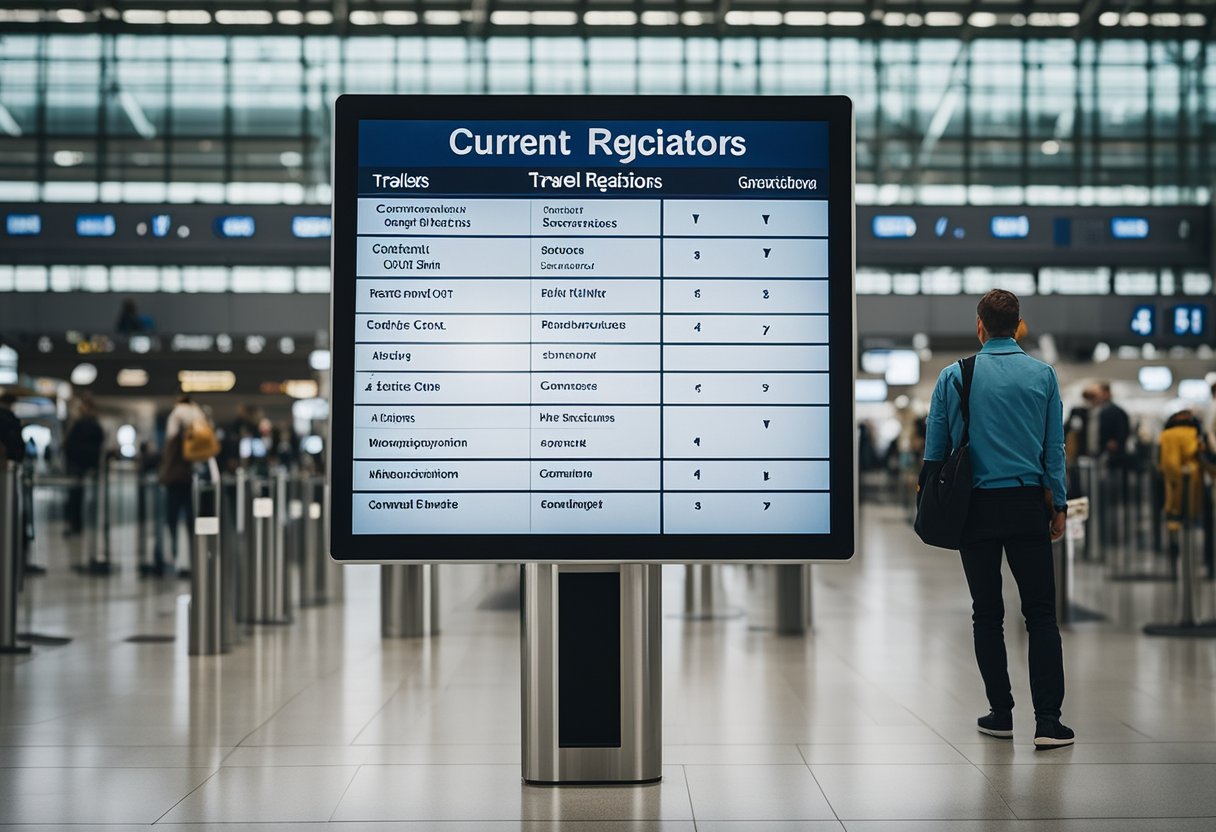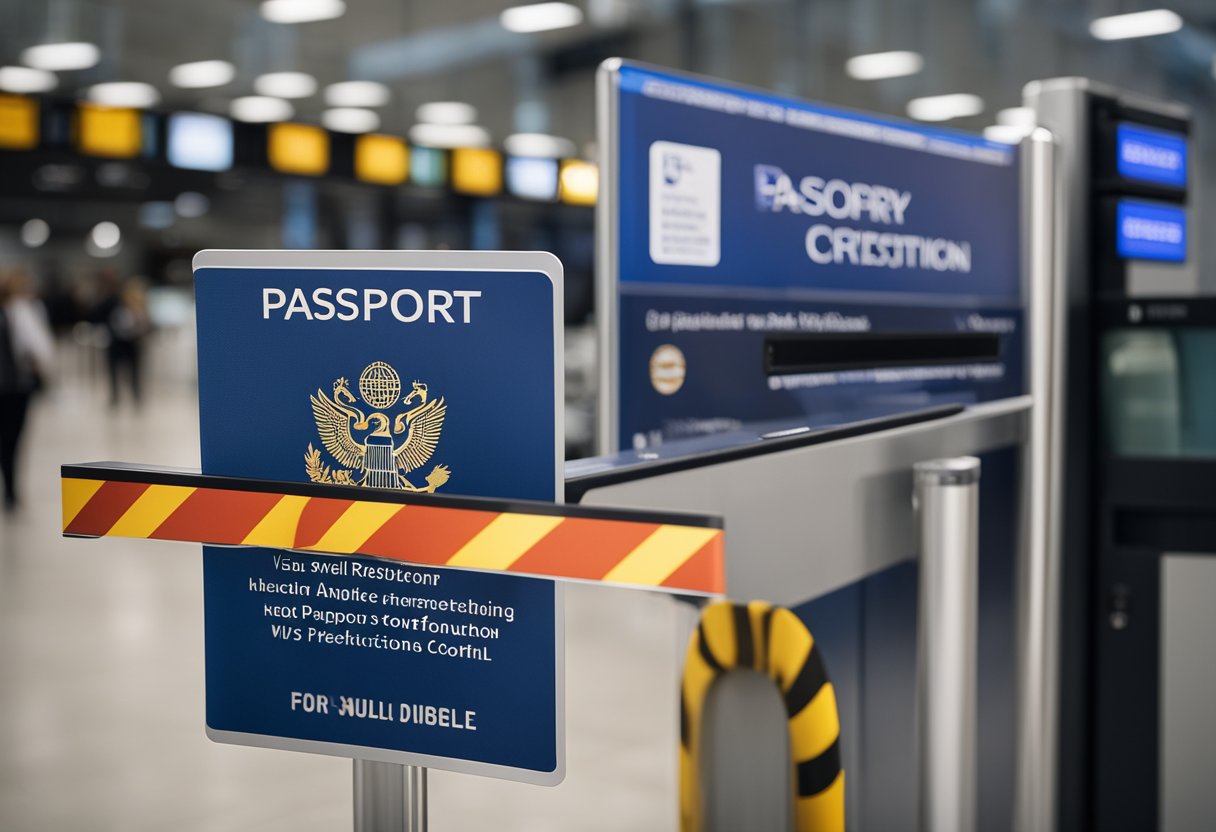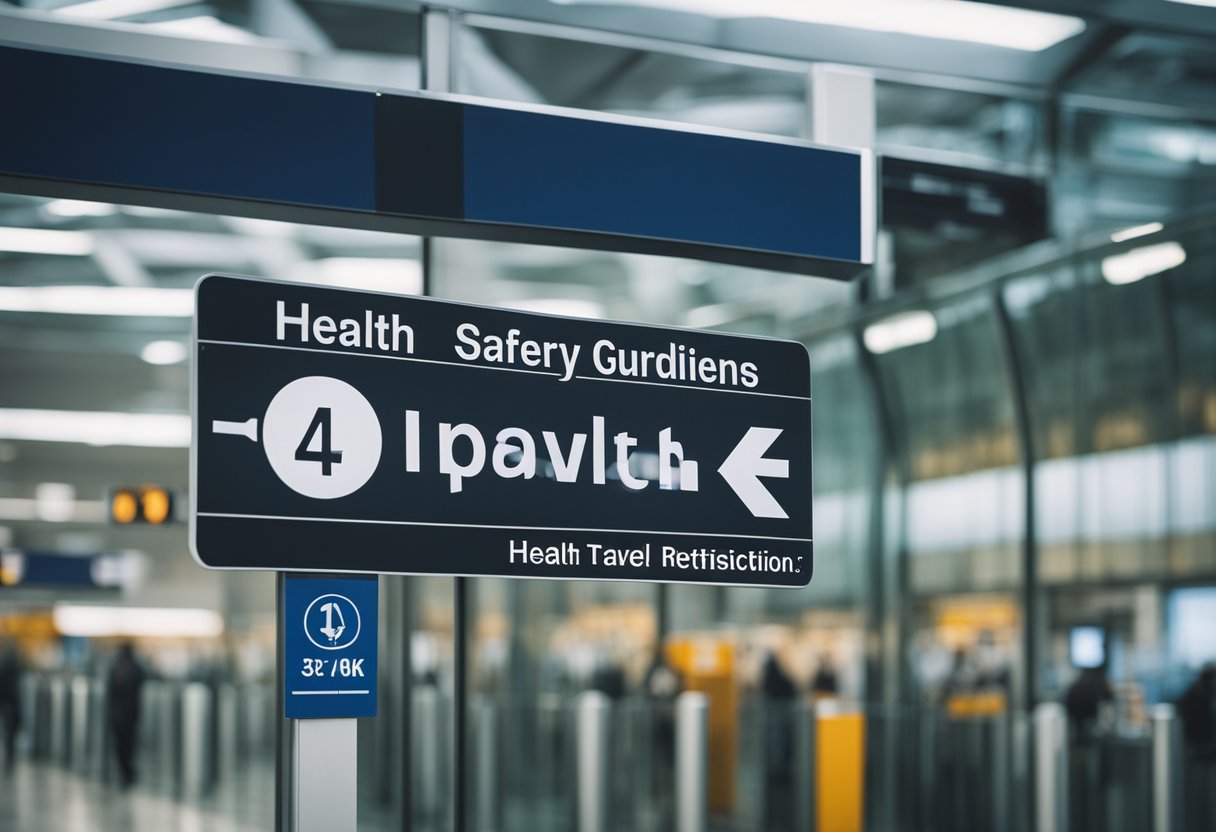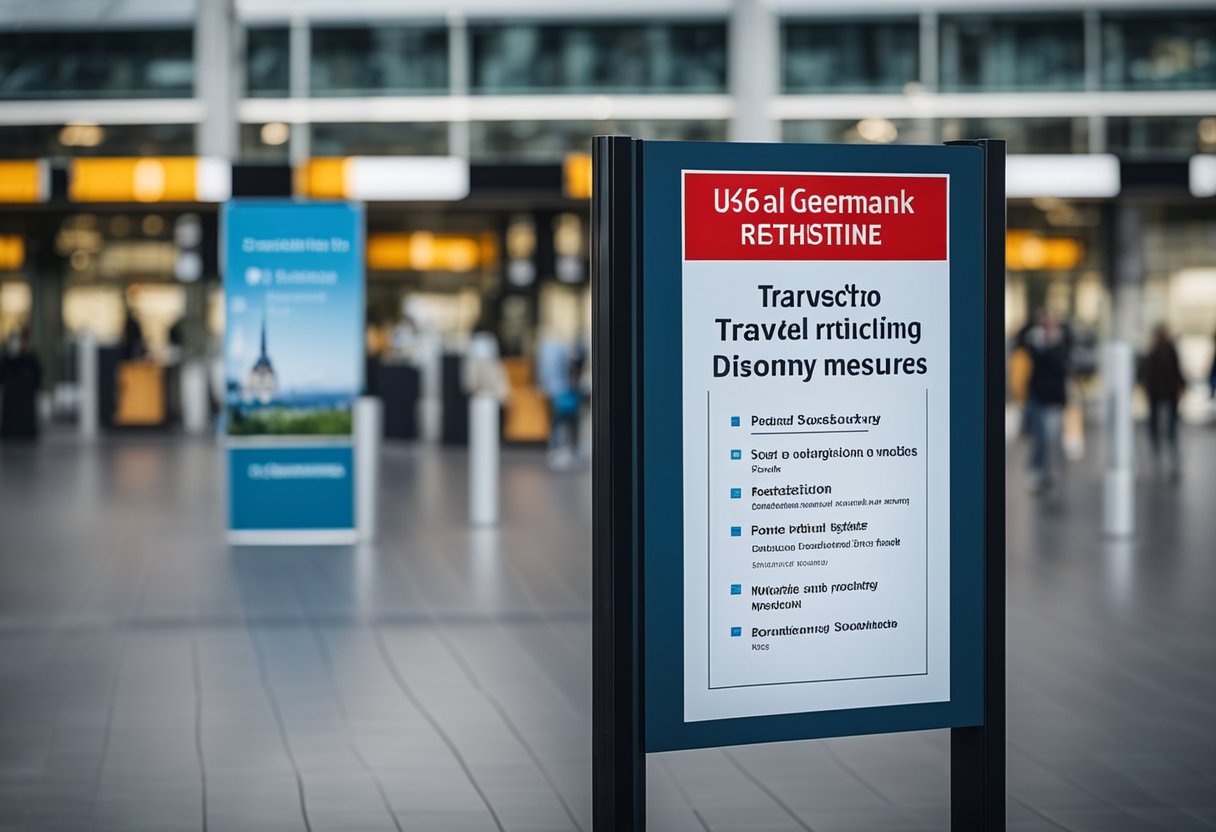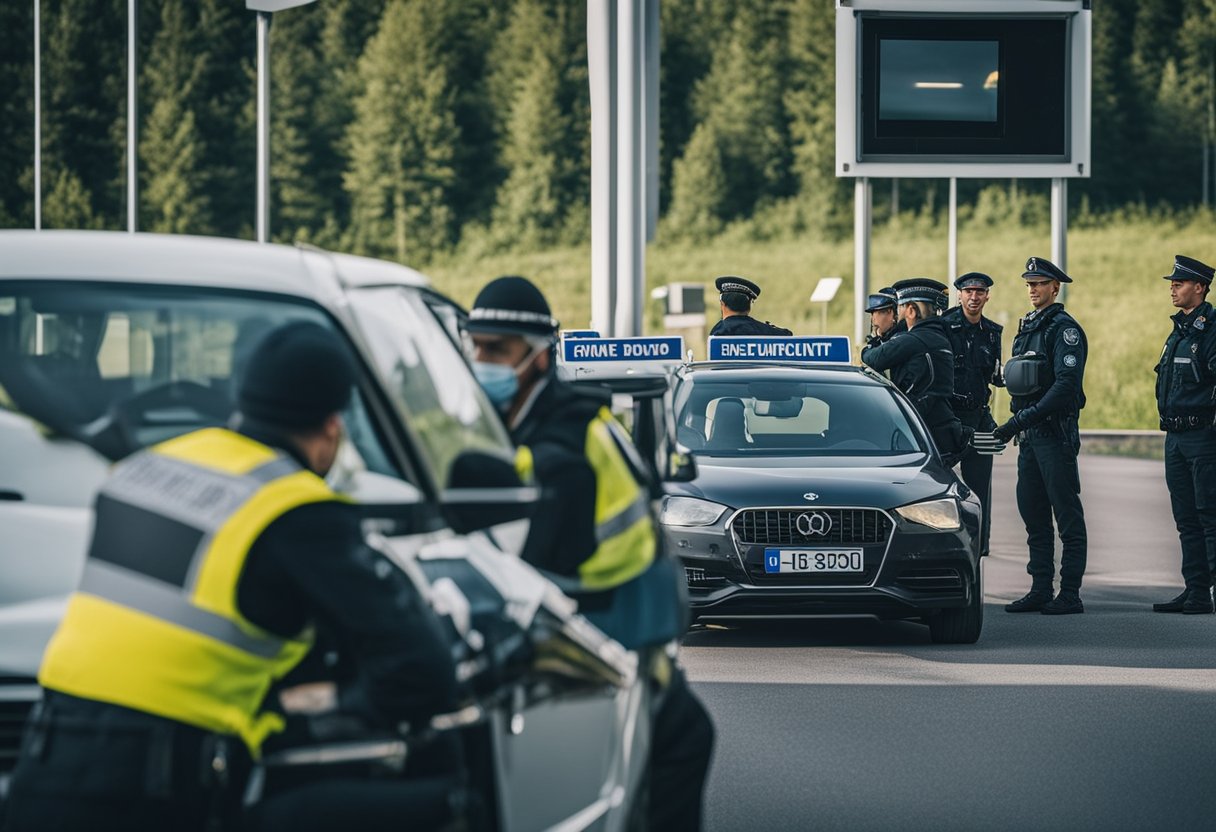Germany, known for its rich history and vibrant culture, has been navigating through the challenges posed by the global pandemic with a series of travel restrictions and requirements.
These measures are designed to safeguard public health while allowing for movement into and out of the country.
Travelers looking to visit Germany, including its capital Berlin, need to be aware of the latest entry guidelines, which are subject to change as the situation evolves.
As of recent updates, Germany has lifted many of the stringent COVID-19 travel restrictions that were previously in place.
Tourists and visitors from the USA and other countries can now enter Germany without mandatory testing or the requirement to show proof of vaccination.
However, it is recommended to stay informed about any Germany travel requirements which could be reinstated depending on the developments of COVID-19 within the country.
The German Health Ministry continues to monitor the situation closely, and any necessary health measures or advisories are issued to ensure the safety of both travelers and residents.
Changes to the Germany entry requirements are promptly communicated, and potential travelers should verify the latest information before planning their journey to Berlin or any other German city.
The present landscape of travel offers a more accessible Germany, signaling a move towards normalcy while maintaining a vigilant stance against the virus.
Current Covid-19 Regulations
Germany has adjusted its Covid-19 regulations, focusing on measures like vaccination proof, testing, quarantine, and mask mandates. These regulations are aimed at curbing the spread of the virus while facilitating safe travel.
Proof of Vaccination Requirements
As per the Federal Foreign Office, proof of vaccination is no longer a prerequisite for entry into Germany for any travel purpose. However, individual establishments such as restaurants or events may have specific requirements.
Testing and Negative Test Results
Previously, travelers needed to present a negative test result before entering Germany. The current Coronavirus Entry Regulations no longer mandate this requirement. Testing may still be conducted at the discretion of health officials, particularly in response to new variants.
Quarantine Measures
There are currently no quarantine measures imposed for travelers entering Germany. This applies regardless of vaccination status, as stated by the German Health Ministry.
Mask Mandates in Public Spaces
While some federal states have relaxed mask requirements, masks are still widely required in public transportation and healthcare facilities. Travelers should prepare to wear masks in settings where social distancing cannot be maintained, such as airports, train stations, and on flights.
Entry and Visa Information
When planning travel to Germany, it’s essential to be up to date on the latest entry and visa requirements to ensure a smooth journey.
This section outlines vital information regarding passports, visas, and regulations for entering Germany, particularly within the Schengen Area.
The details provided will assist with understanding the necessary documentation and the services available through embassies and consulates.
Passport and Visa Requirements
Germany requires that travelers have a passport with at least two blank pages and it should be valid for at least three months beyond the period of intended stay.
Most non-EU nationals who wish to visit or travel within the EU are required to have a visa. A tourist visa is not required for stays under 90 days for US citizens and several other countries.
- EU nationals: No visa required for stays under 90 days.
- Non-EU nationals: Visa requirements vary based on country of origin.
- Children: All minors require their own passport or travel document to enter Germany.
Schengen Area Regulations and Entry Rules
Germany is part of the Schengen Agreement which permits borderless travel between 26 European countries. Travelers entering the Schengen Area are subject to a common visa policy.
- Entry Rules: No border controls within the Schengen Area, but external borders require strict controls.
- Stays: Permitted for up to 90 days within a 180-day period without a visa for eligible travelers.
- Covid-19: As of the last update, COVID-19 entry restrictions to Germany have been lifted, though this is subject to change and travelers should verify the latest information before departure.
Embassy and Consular Services
Embassies and consulates provide assistance and services to their nationals traveling abroad.
- Services Offered: Passport renewal, emergency travel documents, notarial services, and more.
- Location Information: Travelers can find their nearest German missions overseas for support.
For updated travel restrictions and entry requirements due to health concerns, please consult relevant authorities or official resources provided by the German Health Ministry.
Health and Safety Guidelines
As travelers plan their visit to Germany, attention to the latest health and safety guidelines is crucial. These encompass advisories by health organizations, robustness of public health facilities, and access to emergency services.
Recommendations by Health Authorities
The CDC and local health authorities provide continuous updates regarding health advisories for Germany.
It’s essential for travelers to check the latest information on requirements for masks in public spaces, COVID-19 testing, and any quarantine measures. Currently, there is no requirement for vaccination proof for entry, but regulations frequently change.
Public Health Infrastructure
Germany’s health ministry and local authorities maintain a strong public health infrastructure, including mechanisms for disease surveillance and reporting in markets, airports, and other points of entry.
For the most current information, refer to the German Health Ministry which outlines the Coronavirus Entry Regulations, addressing mandatory testing and quarantine protocols as needed.
Emergency Treatment and Hospitals
Germany’s emergency treatment facilities and hospitals are of high quality, with the European Medicines Agency overseeing medical standards.
In case of medical emergencies, visitors can dial 112 for assistance. For the detailed operational status of hospitals and accessibility for treatment of COVID-19 and other health emergencies, consultation with local media outlets or the Department of State is advised.
Practical Information for Travelers
Before embarking on a trip to Germany, travelers should be aware of the latest COVID-19 regulations which can influence various aspects of the journey from entry requirements to navigating the locale.
Ensuring familiarity with the local currency, accommodation options, public transport systems, and cultural norms is essential for a seamless experience.
Currency, Tax, and Shopping
Germany uses the Euro (€) as its official currency. Visitors should note that cash is preferred in many establishments, although credit cards are widely accepted in hotels and large stores.
Remember that VAT (Value Added Tax) is included in the price displayed; tourists from outside the EU may be eligible for a tax refund on goods purchased during their stay.
Accommodations and Where to Stay
Germany offers a range of accommodations from luxury hotels to budget-friendly hostels.
Larger cities like Berlin and Munich have a diverse array of options, including boutique hotels, international chains, and private rentals. It’s advisable to secure travel insurance for unexpected changes or cancellations.
Navigating Public Transportation
Germany boasts an efficient public transportation system, encompassing buses, trams, U-Bahn (subway), and S-Bahn (suburban trains). Purchase tickets from machines or counters prior to boarding and validate them if necessary.
The Deutsche Bahn service provides extensive train travel both within and outside the city centers.
Cultural Norms and Etiquette
When visiting, be mindful of local cultural norms and etiquette. Punctuality is highly respected, and a formal greeting is customary when entering shops or restaurants. When dining out, tipping around 5-10% is appreciated for good service.
Travelers can visit Germany’s National Tourist Board for the latest updates and detailed information on travel and tourism in Germany.
Security and Safety Protocols
When planning travel to Germany, it’s crucial to be aware of safety protocols related to terrorism and to understand the emergency contacts and procedures in the event of an incident.
Dealing with Terrorism and Safety Threats
Germany, like many countries, faces the risk of terrorism. Terrorist groups may plan attacks in public areas such as markets, major events, and transportation hubs, including airports.
The Germany International Travel Information page issued by the Department of State advises travelers to exercise increased caution. Travelers should remain vigilant and report any suspicious activities to local authorities promptly.
Emergency Contacts and Procedures
In the case of an emergency, Germany has a set of established procedures to ensure public safety. It’s important for travelers to note the emergency contact numbers: 110 for police and 112 for fire and medical emergencies.
The U.S. Embassy and Consulates in Germany provide support in emergencies and should be contacted when assistance is needed regarding safety concerns or travel disruptions related to security issues.
Frequently Asked Questions
This section aims to provide recent and specific information regarding travel to Germany, addressing common concerns about COVID-19 protocols, entry requirements for US citizens, and updates on health and safety measures.
What are the current COVID-19 travel restrictions for entering Germany?
As of late, Germany has lifted all COVID-19 entry restrictions. Travelers can enter Germany for any purpose without having to provide proof of vaccination, recovery from COVID-19, or a negative test result.
Are US citizens subject to any specific entry requirements for Germany?
US citizens are not subject to any special entry requirements and do not need a tourist visa for stays under 90 days. However, they should have a passport with at least two blank pages.
What are the latest updates on the use of face masks in Germany?
Regulations on face masks in Germany may vary between federal states. Travelers should check the latest local guidelines upon arrival, but widespread requirements for face masks are generally not in effect.
What items are prohibited or restricted from being brought into Germany?
Travelers should be aware that Germany enforces restrictions on items such as narcotics, weapons and ammunition, and products derived from endangered species. There are also currency restrictions for both entry and exit for amounts over 10,000€.
Has the German government issued any travel advisories due to safety concerns?
The German government has not issued any broad travel advisories due to safety concerns, but travelers should regularly check for updates on the Federal Foreign Office website as situations can change.
What documentation is required for US citizens to travel to Germany?
US citizens traveling to Germany should have a valid passport with an expiration date extending at least six months beyond the period of intended stay. No visa is required for tourist or business trips up to 90 days within a 180-day period.
